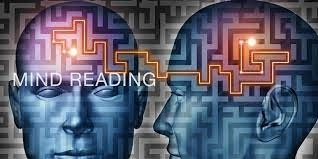Mind Reading: The Power to Know What Others Are Thinking
By School Admin
Mind reading, a concept often relegated to the realms of science fiction, has long captured the human imagination. The very idea of peering into another person's thoughts sparks fascination and curiosity.
The fascination with mind reading can be traced back through history, from ancient myths to modern-day fiction. However, in the real world, the concept takes on a different guise. Mind reading, as portrayed in popular media, involves an individual having the ability to directly access the thoughts of others.
Advancements in neuroscience, particularly in the field of brain imaging, have allowed scientists to gain insights into brain activity. Functional magnetic resonance imaging (fMRI) and electroencephalography (EEG) have enabled researchers to observe brain activity associated with specific thoughts and emotions. While these technologies offer a glimpse into the inner workings of the mind, they fall short of true mind reading as portrayed in fiction.
The ethical implications of mind reading are profound. The potential misuse of mind reading, whether for personal gain or manipulation, raises serious ethical questions that must be addressed.
Moreover, the very essence of human communication relies on the selective sharing of thoughts and emotions. If mind reading were possible, the boundaries between public and private spheres would blur, challenging the fundamental dynamics of human interaction.
While the prospect of mind reading as a superpower may be alluring, it is essential to acknowledge the complexity of the human mind and the ethical considerations intertwined with such capabilities. As technology advances, the ethical framework surrounding mind reading must evolve to safeguard individual privacy and preserve the delicate balance of human connections.
To sum up, the power to know what others are thinking, while a captivating concept, remains firmly entrenched in the realm of fiction. As our understanding of neuroscience advances, ethical considerations become paramount. While the mysteries of the mind continue to unfold, the allure of mind reading serves as a reminder of the delicate dance between imagination and reality.
Garima Sagar
Class XII
